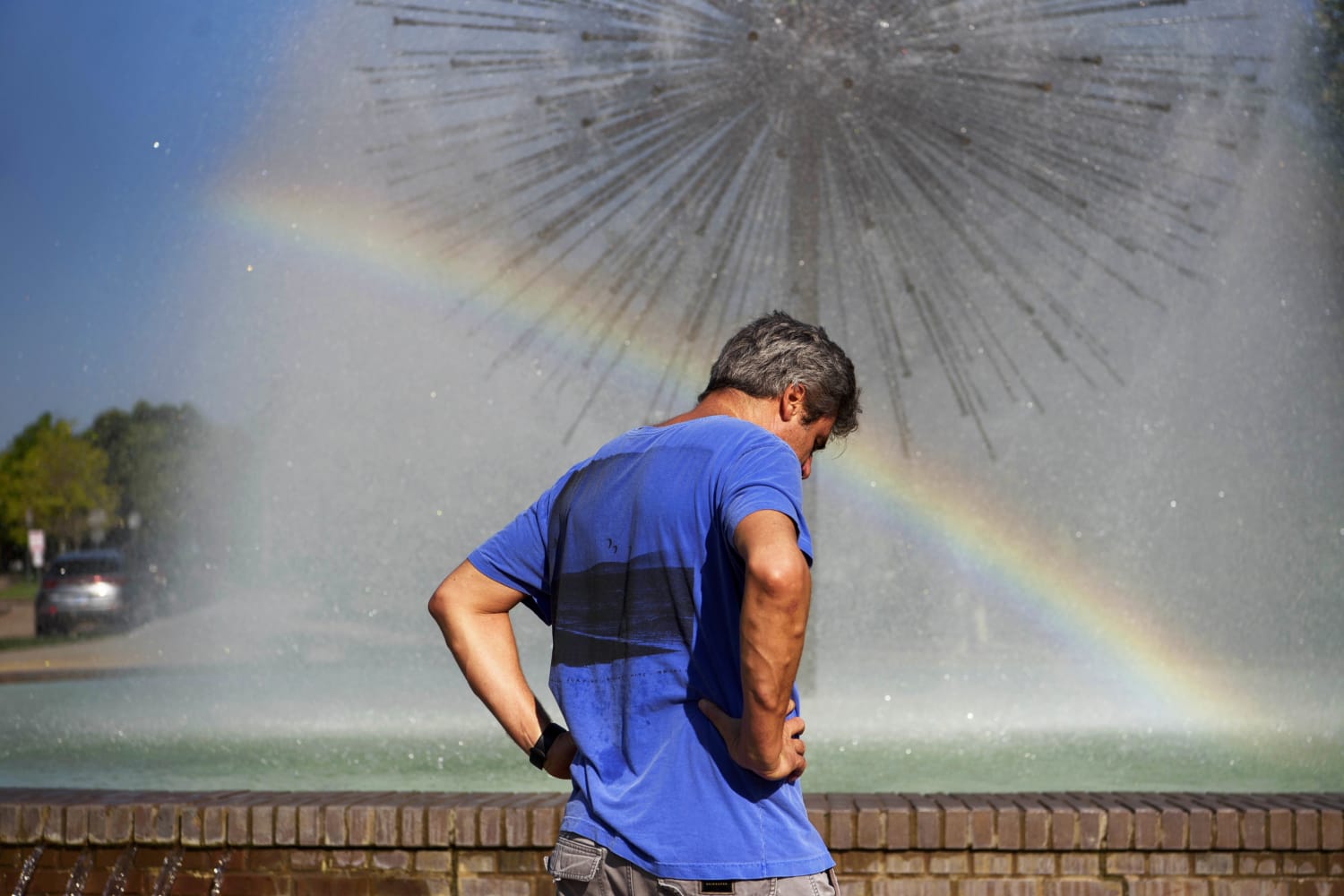
No matter the season, customers of the Electric Reliability Council of Texas are learning they may be better off relying on themselves.
Texans have spent the week keeping cool by fanning themselves and finding shade following the power grid operator’s request that they conserve energy as temperatures rise and several power plants fail.
ERCOT officials haven’t pinned down the cause of the mechanical issues that led to the breakdowns just four months after a massive power outage left millions in the state without heat or electricity.
But some energy experts warn that the recent failings unmask the ongoing vulnerability of the state’s grid and may portend additional shutdowns should temperatures continue to climb this summer.
“It’s not a total surprise that hot weather would strain the grid, only it usually happens in August. That’s what we expect and plan for,” said Michael Webber, an energy professor at the University of Texas at Austin.
Joshua Rhodes, a research associate who studies the Texas electrical grid at the University of Texas at Austin, expressed similar concerns about outages so early in the summer before the season’s hottest days.
“The number of power plants that were online for outages was a bit concerning, given where we are and the temperature,” he told NBC Channel 5 in Dallas. ERCOT officials this week said the number of plants offline for maintenance issues is at least three times higher than usual for this time of year, the station reported.
ERCOT, which oversees 90 percent of Texas’ energy production, on Monday asked residents to limit their electrical usage through Friday, amid an energy emergency with soaring temperatures and a series of mechanical problems at power plants.
Recently, ERCOT said the chance of having summer power outages was less than 1 percent and that rolling blackouts would occur only in extreme circumstances. However, the nonprofit group avoided blackouts Monday only by using reserve power and asking customers to turn up their thermostats, turn off lights and avoid using some appliances, including ovens and washing machines.
In fact, Monday’s power crunch included worst-case scenarios such as lower-than-expected wind power, concerns about solar power dropping off at sunset and a larger-than-expected number of breakdowns at traditional power plants.
Webber partly blames the shutdowns on climate change, in addition to power plants hitting capacity limits set decades ago.
“We’ve planned for the weather of the past instead of the weather for the future,” he said. “We’re getting more heat often and in different seasons than we expect. We’re also getting cold more often and with lower temperatures than we expect.”
Still, the weaknesses in the Texas power system — America’s only independent electrical service — have been apparent for years.
Federal regulators warned ERCOT a decade ago that its power grid was vulnerable following a 2011 blackout caused by cold weather, although it was not required to act on the recommendations.
More recently, millions in Texas went days without power in February, as bitter cold and ice caused blackouts. More than 100 people died in the winter storm, state health officials said.
State lawmakers in recent months adopted two laws mandating that power companies make upgrades to withstand extreme weather. It could be years before those improvements are done and the grid is more dependable, which Webber said means the measures don’t go far enough.
“They’re forcing power plants to winterize in some future year, which doesn’t help us for the summer and they did not include efficiency, they did not include demand response. There’s a lot of missed opportunities,” he said.
Meantime, Texas residents are left to suffer the consequences.
Houston resident Brandon Mosley, 39, believes the grid system has become unreliable and recently purchased a generator in case rolling blackouts ever happen again.
“I learned that from the winter storm. My family and I have no faith in ERCOT, the system and the way they do things,” he said. “We just want to be prepared for if or when. That way we can maintain our lifestyle.”
In San Antonio, Keith Taylor, 47, said he made it even cooler in his home after hearing of ERCOT’s call for conservation. ERCOT knew the grid was susceptible to outages and “hiccups” after the winter freeze and should have been more prepared, he said. Taylor said he lost all power during the freeze for 30 hours and had rolling outages for about 36 more.
“I turned my AC down. I made it colder,” Taylor said. “Don’t call me with that nonsense. I’ve got kids at home.”
Suzanne Gamboa contributed.
Source: | This article originally belongs to Nbcnews.com










